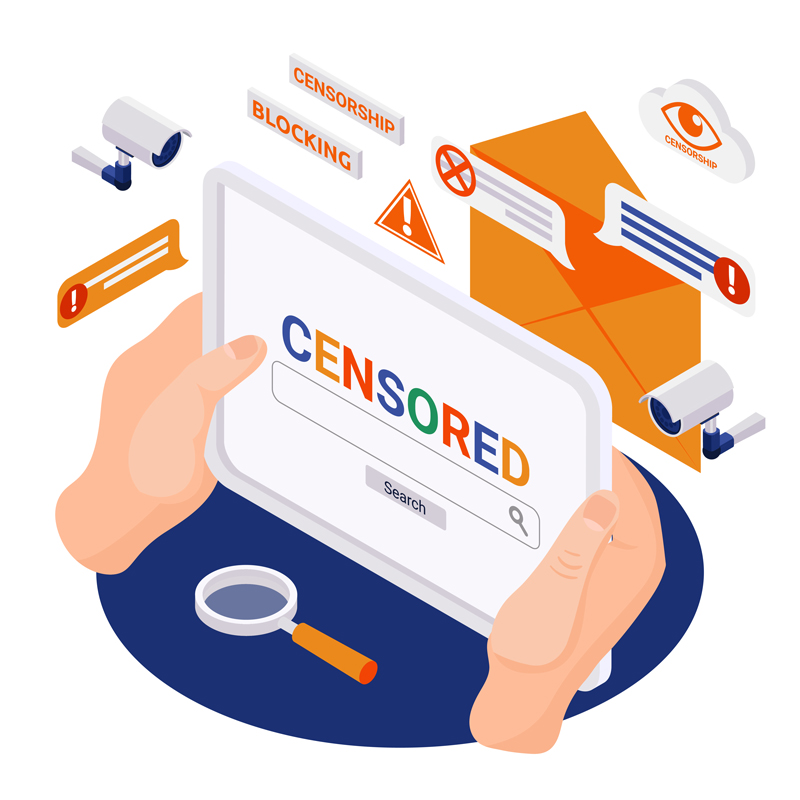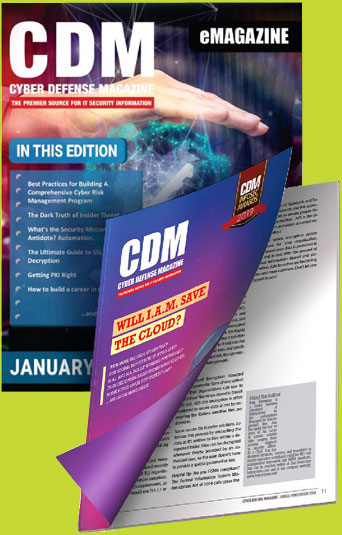PLUSES AND MINUSES
By Milica D. Djekic
Prohibiting someone from seeing something could be considered as a breaching of the human right, many privacy experts would say. The real reason why some web content is available somewhere, but somewhere else not is more security question. The Darknet systems can provide anonymity, privacy and security to their users and they are mainly role-based as it means that only someone with the top permissions can review all accessible accounts. So, that could indicate the Deep Web assets are under someone’s control and maybe the tale that anyone dealing there remains invisible to the authorities is a pure illusion. It’s hard to manage the internet content as the poll of findings is too large, but it’s quite obvious anyone using the web will leave some information in the cyberspace sooner or later letting the good analysts interpret once gathered intelligence. The reason why some governments ban some websites on their territory is mostly addressed to safety and security of their people and facilities. For instance, if there are a lot of terrorist messages across the web it’s normal that the progressive countries will not allow their nations to read those blogs as someone could turn into such a propaganda’s brainwashee. The active terrorist on the territory of some European or the US state is a threat to the rest of the population, so it’s vitally important to prevent those incidents even happen.
The Darknet environments are well-known as the oases for transnational crime and terrorism, but they are mainly deployed by the armies of the non-terrorist countries. In other words, someone holds the keys in his hands when we talk about such an infrastructure. Also, there is a strong appeal to security community to carefully investigate the both – visible and deep web in order to determine if there are some R&D bad guys’ endeavors. It’s a challenge to design a reliable communication system that will transfer the messages in a quite protective fashion perhaps in case of some malicious organizations. The modern security challenges have learned to use already developed web accounts in order to exchange the information between each other. So, what they do we can get! For instance, the Tor browser is well-encrypted communication system and the suggested routing can be put under a certain camouflage. It’s in a quite militant manner to skillfully cover what is done. The research community will deal with some findings regarding, say, the Tor search engine – but the general public will never know what the case is for real. It takes time to research something and especially prove it with the rigid clues. The similar situation is with the web findings as there is always an opportunity to miss something and uncover the current position. Maybe someone will dare to challenge the authorities, but as it is well-known there are well-developed techniques and methodologies to smash the offenders.
On the other hand, the terrorist and apparently; enemy’s areas could attempt to ban any single piece of democracy coming from the developed economies as their folks should stay blind about the ongoing global situation. Indeed, the censorship is a way to limit someone’s perspectives and make own people being forced to believe into something undoubtedly so wrong. The censorship brings with itself the limited freedom of speech or in some cases its complete lack. It appears someone wants to prohibit the torch of the light and keep people in darkness believing no changes will ever happen so far.
About the Author
Milica D. Djekic is an Independent Researcher from Subotica, the Republic of Serbia (Europe). She received her engineering background from the Faculty of Mechanical Engineering, University of Belgrade. She writes for some domestic and overseas presses and she is also the author of the book “The Internet of Things: Concept, Applications and Security” and “The Insider’s Threats: Operational, Tactical and Strategic Perspective” being published in 2017 and 2021 respectively with the Lambert Academic Publishing. Milica is also a speaker with the BrightTALK expert’s channel and Cyber Security Summit Europe being held in 2016 as well as CyberCentral Summit 2019 being one of the most exclusive cyber defense events in Europe. She is the member of an ASIS International since 2017 and contributor to the Cyber Defense Magazine since 2014 and the Australian Cyber Security Magazine since 2018. Milica’s research efforts are recognized with Computer Emergency Response Team for the European Union (CERT-EU), Censys Press, BU-CERT UK and EASA European Centre for Cybersecurity in Aviation (ECCSA). Her fields of interests are cyber defense, technology and business. Milica is a person with disability.


